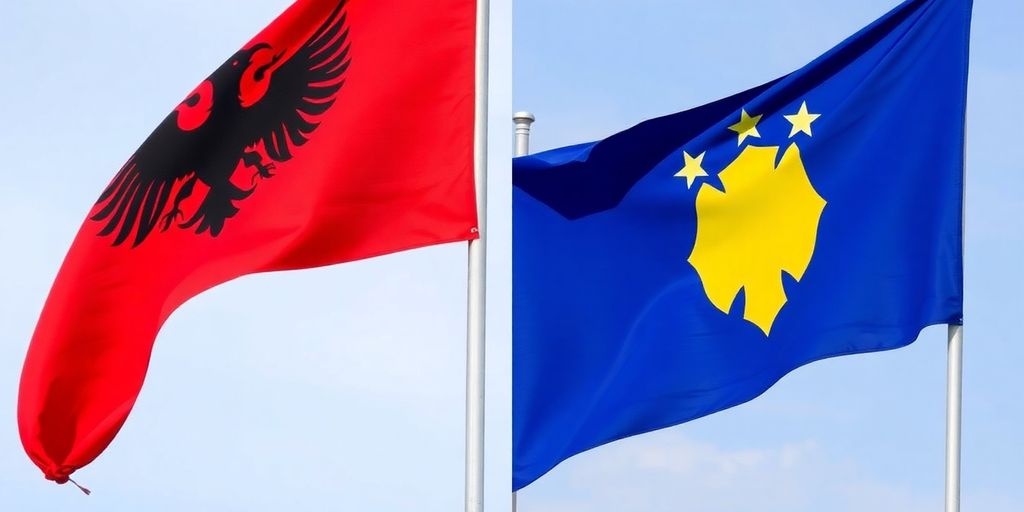A recent social media post ignited a debate among users, posing the question of national identity through the choice between the flags of Kosovo and Albania. This seemingly simple query has sparked a complex discussion about heritage, political affiliation, and the nuanced perspectives within the Albanian diaspora and beyond.
The Heart Of The Debate
The core of the discussion revolves around the symbolic representation of identity. For many, the Albanian flag (red with a black double-headed eagle) represents a broader ethnic and historical connection to the Albanian people, regardless of current national borders. Conversely, the Kosovo flag (blue with a gold map of Kosovo and six white stars) signifies the independent state of Kosovo, recognized by many nations but not all.
- The question highlights the differing views on national allegiance and ethnic solidarity.
- It underscores the ongoing complexities of identity in a region with a history of shifting borders and political struggles.
Historical Context And Identity
The historical ties between Albanians in Albania and Kosovo are profound, rooted in shared language, culture, and ancestry. However, the declaration of Kosovo’s independence in 2008 introduced a distinct national identity for Kosovar Albanians. This has led to a dual sense of belonging for many, where ethnic Albanian heritage coexists with Kosovar statehood.
Social Media As A Forum
Social media platforms frequently serve as arenas for such discussions, allowing individuals to express their views and engage with a global audience. The viral nature of the "Which flag represents you?" question demonstrates the power of these platforms to bring sensitive topics to the forefront and facilitate widespread public discourse.
Key Takeaways
- The debate reflects the multifaceted nature of identity, encompassing both ethnic heritage and national citizenship.
- It illustrates the ongoing dialogue within the Albanian community regarding their collective future and individual allegiances.
- Social media continues to be a significant platform for exploring and debating complex socio-political issues.






